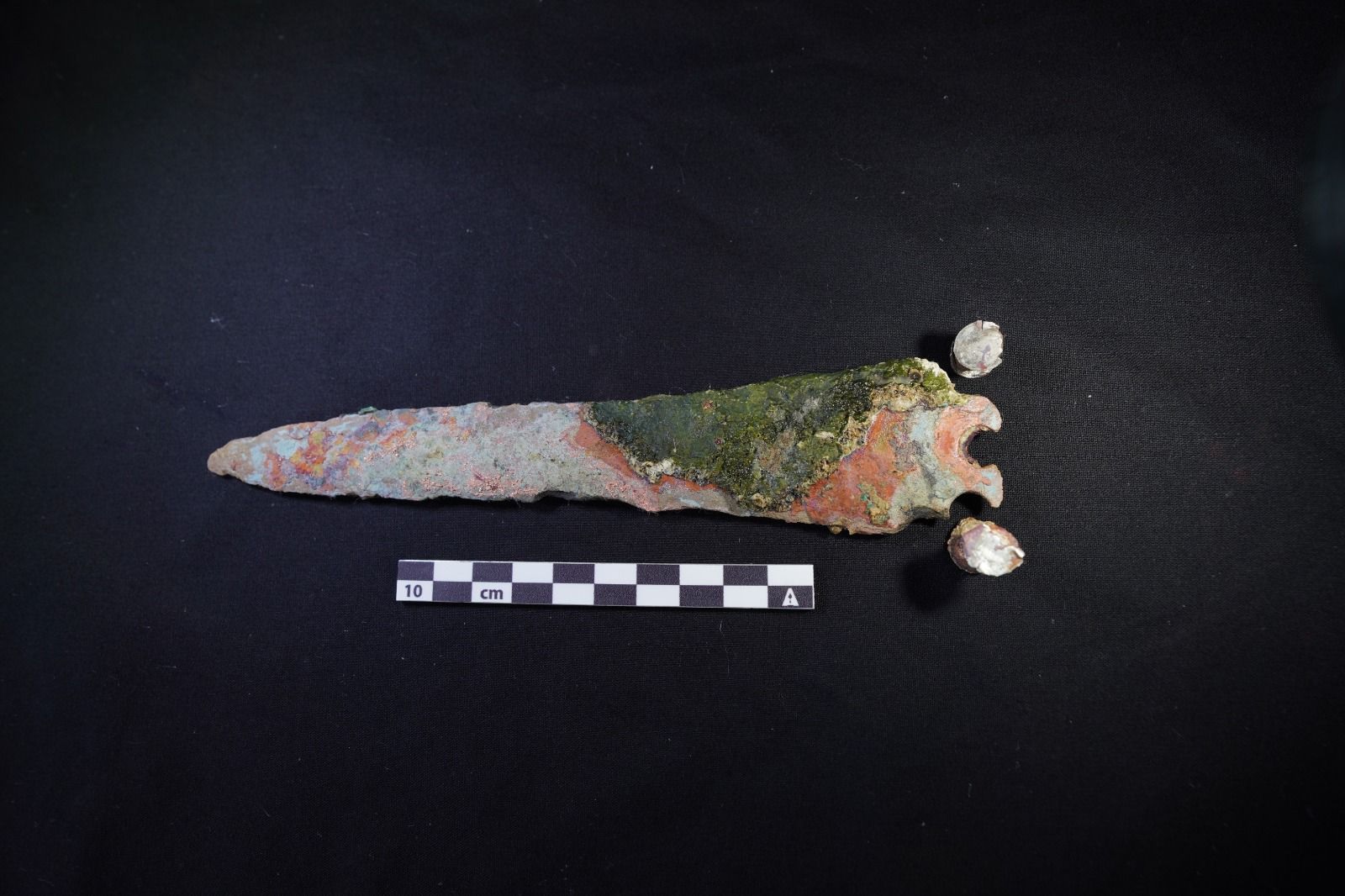Underwater archaeologists from Akdeniz University have discovered a 3,600-year-old silver rivetted bronze dagger off the coast of Kumluca Municipality in Turkey.
Since 2019, an excavation project, led by Assoc. Prof. Dr. Hakan Öniz from Akdeniz University’s Fine Arts Faculty, has been exploring the seabed off the coast of Kumluca in Turkey’s southern province of Antalya.
The project has found a shipwreck located at a depth of 50 metres, which was carrying a cargo of copper pillow ingots believed to have originated from Cyprus’s Troodos Mountains.
More recently, the researchers have discovered a silver rivetted bronze dagger at the wreck site, which has been associated with the Cretan-Minoan civilisation, a Bronze Age culture centred on the island of Crete.

The Minoan civilisation emerged from the local Neolithic culture around 3100 BC, with the development of complex urban settlements beginning around 2000 BC. Around 1450 BC, the Minoans fell under the cultural and political influence of the mainland Mycenaean Greeks, leading to a hybrid culture that lasted until approximately 1100 BC.
The Minoans established themselves as a major maritime force in the eastern Mediterranean, fostering extensive trade networks with Egypt, the Levant, Anatolia, Cyprus, and the Greek mainland.
According to a press statement by Minister of Culture and Tourism Mehmet, Nuri Ersoy: “A silver-riveted bronze dagger belonging to the Cretan-Minoan civilisation was found in underwater excavations carried out off the coast of Kumluca district of Antalya.”
“The shipwreck is a candidate to be one of the most important discoveries not only in Turkey, but also in the world’s underwater archaeology,” added Minister Ersoy.
Archaeologists suggest that the dagger’s connection to the Cretan-Minoan Civilisation offers new insights into the historical trade routes and cultural exchanges in the Mediterranean.
Header Image Credit : Minister Nuri Ersoy
Sources : Ministry of Culture and Tourism of the Republic of Turkey





